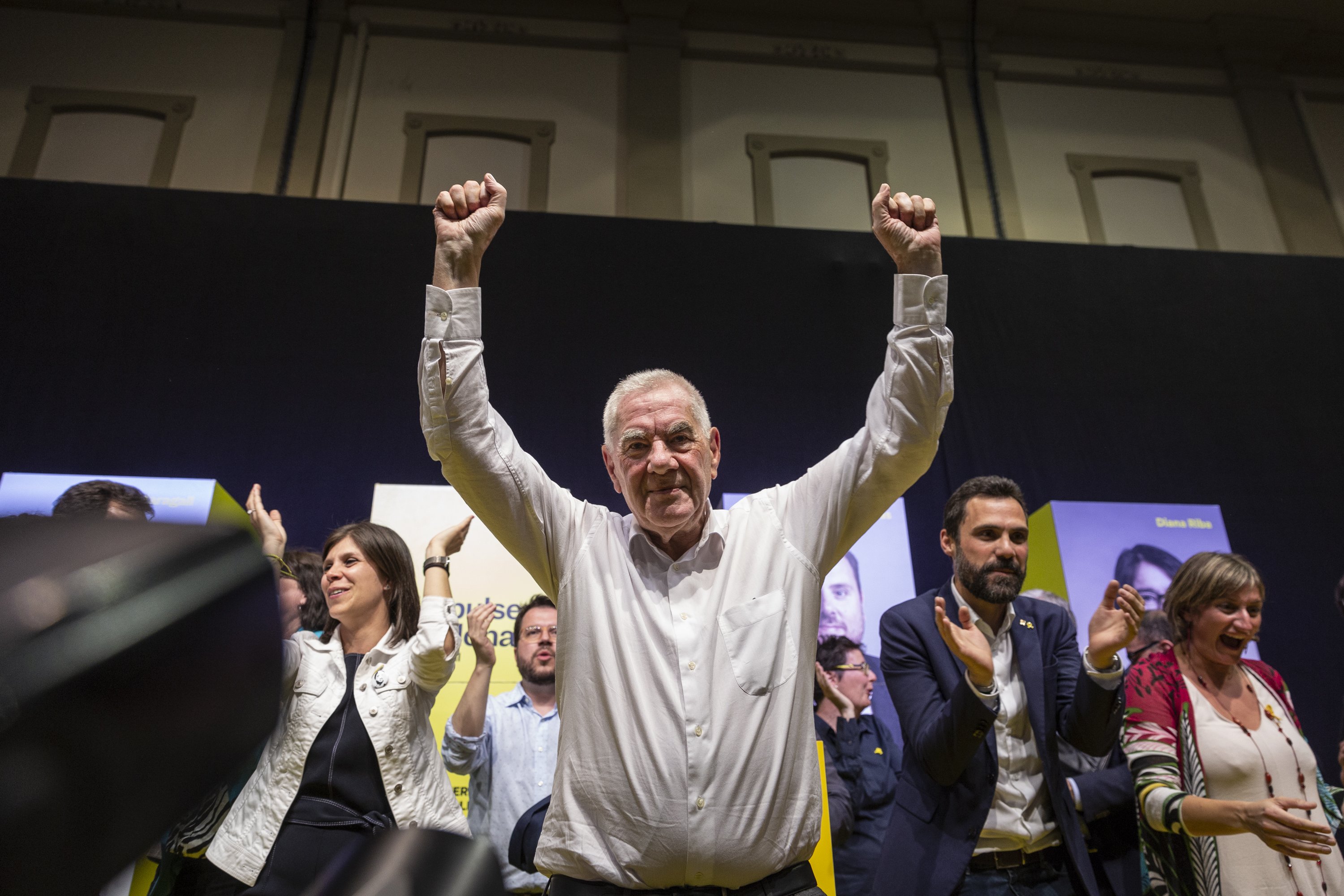Euphoria at the electoral headquarters of the Catalan Republican Left (ERC) after Ernest Maragall managed to nose ahead in a tight race with Ada Colau for the mayoralty of Barcelona. But the night has been long (and vertiginous). For days the polls have been predicting that the gap between the two candidates was getting narrower, suggesting that everything would remain in the air until the last moment. And that's how it was.
Not until more than 70% of the votes had been counted did Maragall take the slimmest of leads over Colau. The two parties, ERC and BComú (Barcelona in Common), have tied at 10 councillors, but Maragall won the night by just 4,654 votes, with 98.3% of votes counted. The ERC results are historic. In 2015 they were in a modest fourth position with only 5 councillors, and they've now doubled that figure. Colau, on the other hand, lost one.
In spite of this, the result obliges forces ERC to enter into agreements, since the party's 10 seats are far from a majority in the council - for that, 21 votes are required.
Third position went to the Catalan Socialist (PSC) candidate Jaume Collboni, who also achieved a very good result, with 8 councillors, four more than in the previous elections. Collboni took a solid lead at the start of the vote scrutiny, but as the night went on, the air went out of the PSC balloon, and ERC and the Commons forged ahead. In spite of this, the Socialists have won back some of the municipal power they lost in their disastrous defeat of 2011, and have doubled their 2015 results.
The man who, a few months ago, promised to be the great revelation of the elections, the former French prime minister, Manuel Valls, has ended in failure, reaching only a modest fourth position with just six councillors, one more than Carina Mejías at the head of the Ciudadanos (Cs) list four years ago. Valls, who had the support of Cs, landed in Barcelona last September with the intention of winning, but the campaign has become too long, and the erosion of his support in the surveys has been gradual but constant.
Meanwhile, the Quim Forn-Elsa Artadi tandem also failed to overcome the bad auguries of the opinion polls. JxCat (Together for Catalonia), which won the EU elections in Catalonia, did not manage to replicate its results at the municipal ballot box and has been left with only 5 councillors, far from the 10 seats won by Xavier Trias in 2015, slipping from second place to fifth.
Finally, the PP's risky choice of candidate, Josep Bou, did at least manage to save the furniture. Although it was close, the PP in the end will return to the Catalan capital's city council, and with only one councillor fewer than before, going from three to two. On the other hand, neither the left-wing CUP nor Jordi Graupera's Primàries platform made the cut. The CUP, who won three councillors in 2015, have been shut out of city hall although they won 28,732 votes, just 9,000 fewer than the PP, while the Graupera list that emerged from open primary elections among part of the independence movement obtained 27,504.

